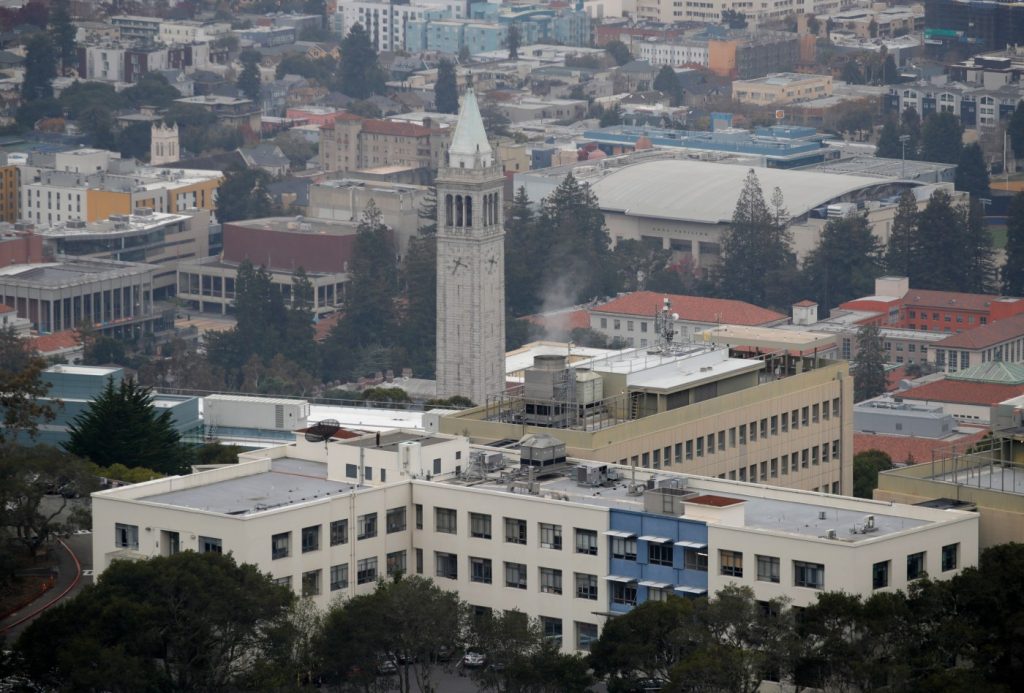The Bay Area has long been an innovation powerhouse. My institution, UC Berkeley, is now the top-ranked university in the world for venture-funded startups.
A key element of this extraordinary dynamism is a revolutionary bill passed in 1980, the Bayh-Dole Act, which enabled the transfer of patented university inventions to the private sector for commercial development.
The Biden administration recently proposed changes that would undermine Bayh-Dole. Draft guidelines would expand Washington’s power to “march in” and effectively void patents on university inventions if government officials deem the prices of resulting products too high.
Officials claim this leverage would reduce drug prices. But this unprecedented expansion of the government’s authority would uproot America’s research ecosystem.
Since 1990, more than 280 high-growth companies have been founded to commercialize UC Berkeley research. They leveraged $51 million in initial government grants into more than $25 billion in private investment. Given that Berkeley now receives anywhere between $400 million and $600 million in federal research funding annually, our ability to spur groundbreaking entrepreneurship keeps growing.
None of this would be possible without Bayh-Dole, which allows universities to own, patent and license inventions arising from federally funded research. Prior to Bayh-Dole, the government held such patents and promising discoveries languished on lab shelves.
Thanks to Bayh-Dole, companies are eager to access the early-stage research that takes place at universities. These firms also sponsor research in academic labs, join industry affiliate programs and routinely hire university inventors as consultants.
Consumers everywhere benefit from the commercialization of university technology. From UC Berkeley alone, those inventions include medicines for cancer and malaria, gene-editing technology being used to solve health, climate and agricultural problems worldwide, and wave-powered electricity generation.
The Biden administration’s march-in proposal introduces deep uncertainty into this wildly successful system. If agencies can seize control of intellectual property rights without warning, startups will hesitate to license federally funded research in the first place. Doing so would make it practically impossible for startups to attract venture capitalists, who rely on reliable IP rights when making investment decisions.
The proposal would be catastrophic for research institutions, which reinvest licensing revenue into research to help brilliant researchers — including students — produce more world-changing solutions. Government-sponsored inventions have generated more than $221 million for UC Berkeley to date, with scores of future revenue-generating products under development.
If adopted, the proposed march-in framework would jeopardize this beneficial cycle of discovery, translation and reinvestment. Components of the innovation system outside universities — including capital providers, incubators and accelerators, business parks and law firms — would suffer, too.
Weakening intellectual property protections would also undermine crucial government initiatives such as the Small Business Innovation Research and Small Business Technology Transfer programs and the National Science Foundation’s Innovation Corps. Innovators may hesitate to accept any funding or other assistance from the government if it puts their intellectual property in jeopardy.
Related Articles
Opinion: Smart but stinky strategies in California’s Senate race
Opinion: SJSU’s apology for 1942 role in citizens’ detentions
Opinion: Congress need to renew Alzheimer’s research legislation
Opinion: Why so many California communities lack clean drinking water
Opinion: Prop. 47 has responsibly reformed the criminal justice system
The Biden administration’s impulse to do something about drug pricing is understandable, but its proposed methodology is wrong-headed and dangerous. While drug prices capture headlines today, Bayh-Dole supports breakthroughs in computing, robotics, climate tech, advanced materials, agriculture, aerospace and more — and upending it in this way will do virtually nothing to lower drug costs.
We must nurture and protect the policy infrastructure that makes success possible. The stakes extend well beyond the Bay Area. Our country’s future as an innovation-based economy depends on it.
Carol Mimura is the former executive director of the Office of Technology Licensing at UC Berkeley and current assistant vice chancellor for intellectual property and industry research alliances.


